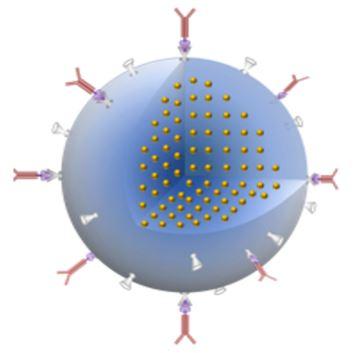Nanoparticle for the Treatment of Cancer
Our research focuses on customizing the size, payload, and targeting moiety of our engineered nano-particles aiming to develop innovative therapeutic strategies that can specifically and efficiently deliver the desired therapeutic moieties to tumors. This tailored approach holds significant potential for enhancing the effectiveness of cancer treatment and minimizing off-target effects.
Our strategies including direct targeting of tumor antigens, such as CD38, or targeting antigens that are uniquely expressed in the tumor microenvironment (TME) but not/less in normal tissues, such as P-selectin and E-selectin on tumor associated endothelial cells (TAECs). Further more, we use nanoparticles to solve biological and clinical problems in immunotherapy, such as development of nanoparticle based bispecific T cell engagers (NanoBTCE), which solve the problem of short pharmacokinetic profile of "classic BTCEs), or development of nanoparticle-based multi-specific T cell engagers (NanoMuTEs) that solve the problem of antigen-less tumor escape due to targeting only one cancer antigen in immunotherapy. In addition, we tackle the problem of T cell exhaustion by delivery of nano-particle based T cell activators, such as Phytohaemagglutinin (PHA).
